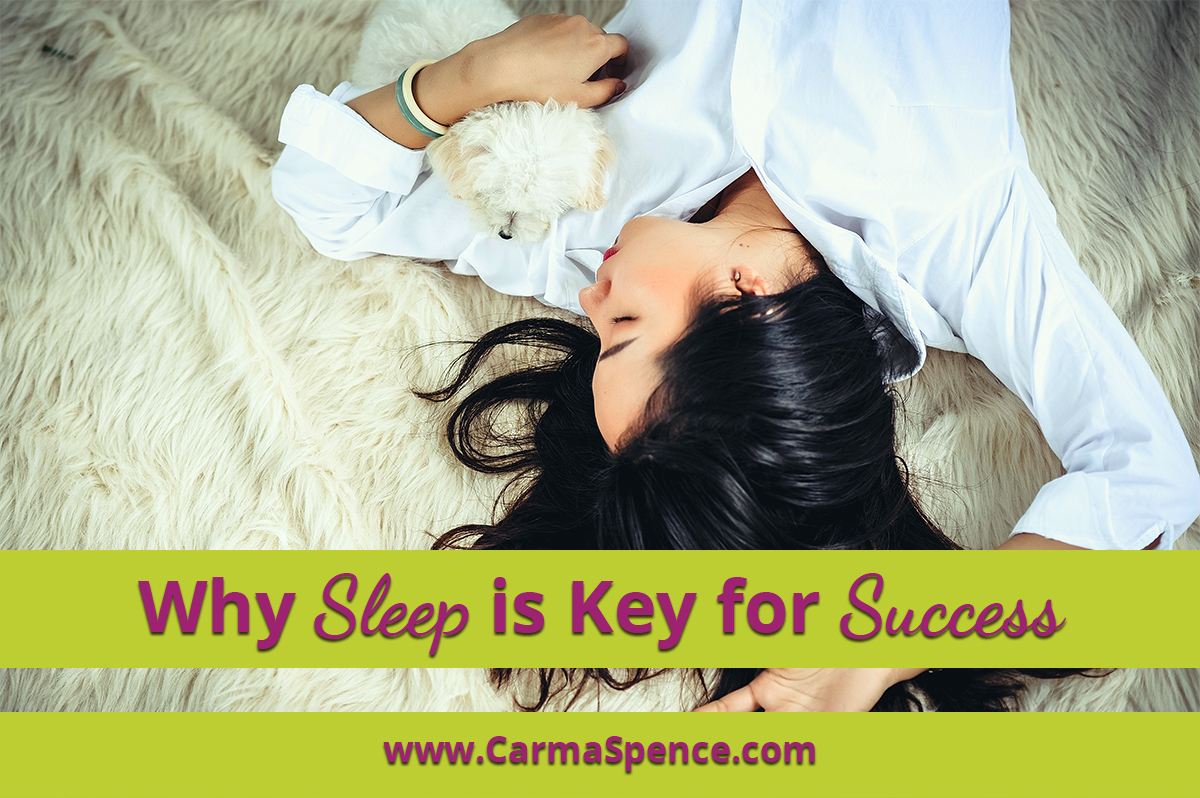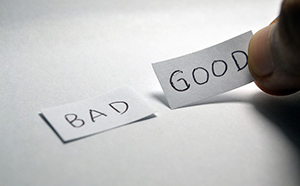The other day I was pitched an article about why sleep is key for career success. The article, written by Merilee Kern, MBA, a branding, business, and entrepreneurship success pundit, as well as influential media voice and lauded communications strategist, made a lot of points that I think are very applicable to the work-at-home entrepreneur.
I don’t know about you, but I never seem to get enough sleep these days. Since this business is currently my side hustle, I have a long commute to a day job. Therefore, I get up early and go to bed late. Add on to that my health issues, most of which are offshoots of my car accident last year, and getting a good night’s slumber almost seems like a fantasy.
Sleep is a necessity of human life. It restores both mind and body and is required to optimize mental clarity, focus, ideation, awareness, productivity, and overall performance. As work-from-home entrepreneurs, we are seen as leaders and leaders need to have those qualities optimized if we are going to build our dream businesses, serve those we were meant to serve, and live up to our greatest potential.
According to Kern’s article, the CDC declared “insufficient sleep” an “important public health concern,” a RAND Corporation study sheds more unpleasant light on the issue, finding that business losses in the U.S. resulting from deficient sleep reaches a staggering $411 billion (2.28 percent of its GDP) — the highest economic loss incidence of the countries studied. Imagine how much money you might be losing due to sleep deprivation?
But there is good news. According to the RAND study, even “small changes to sleep duration could have a big impact on the economy.” For example, if individuals who normally sleep under six hours slept even just one or two hours more, over $226.4 billion could be added to the U.S. economy.
The study also linked sleep deprivation to lower workplace productivity, resulting in “a significant amount of working days being lost each year” with the U.S. annually losing around 1.2 million working days due to sleep deprivation — not to mention untold millions more being lost due to sleep deprivation – driven “presenteeism” (the practice of coming to work despite illness, injury, anxiety, etc).
Ask yourself this: How many times have you pushed yourself to work longer when you were dying to take a nap? When this happens, I stop and take a power nap. You’d be surprised how much more productive you can be when giving your body 15-30 minutes of rest and sleep. In the corporate world, taking lunchtime naps can make you seem “lazy,” but when you work at home, you have no excuse not to indulge in this very important bit of self-care.
“When the body achieves a natural flow with the mind, it makes a difference in how a person experiences the world,” says Alvaro Vaselli, founder, and CEO of Nuvanna — a sleep science and productivity-driven mattress company. “If recuperative sleep is good for people in general, think about the edge leaders in each of their fields who maintain quality, restorative sleep can have over the competition.” This includes you, my friend.
As the face, body, and soul of your business, you have a duty to your family, your clients and yourself to take care of your health. Getting a good night’s sleep is an important part of this self-care. With this in mind, below are Alvaro’s easy-to-follow strategies that leverage the power of a quality night’s sleep for getting ahead.
Mental Clarity
Without proper sleep, your mind can get fuzzy. A fuzzy mind does not come up with innovative ideas to move your business forward or help your clients achieve the results you want for them. “When people have slept less, it’s a little like looking at the world through dark glasses,” according to Janice Kiecolt-Glaser, longtime relationship scientist and director of the Ohio State Institute for Behavioral Medicine Research. “The well-rested brain versus the sleepy brain will accomplish much more but will also be happier and less stressed while doing so.” People who make a commitment to deep, uninterrupted sleep for eight or more hours report more focus, more energy and more motivation than their counterparts.Better Sleep = Greater Success
When you get enough sleep, you are more likely to be in a better mood. I know this from experience because I’m often grouchy on weekday mornings when I get up at 4:30 am, but blissfully content on weekends when I often sleep into 6 am. What a difference that extra hour and a half make! People who are well-rested report feeling happier and less stressed than their counterparts.When you are in a better mood, your relationships are better, as well. And all this leads to greater success, for relationships are major components to winning in business, especially when you are a solo entrepreneur. According to Steve Tobak, a management consultant, an executive coach, and a former senior executive of the technology industry, “The key to business success is winning and keeping customers. And the key to winning and keeping customers is, and has always been, relationships.”
By giving your body the sleep it needs to perform optimally, you can give 100% of yourself in your personal and professional relationships, which helps relieve stress, maintains positive mental health and leads to a more balanced work/leisure lifestyle.
“Productivity Illusion”
Ah, here is the rub! How many times have you pushed yourself earlier and/or later in the day, disregarding sleep, because you believe you are being more productive?Amazon CEO Jeff Bezos says that making “a small number of key decisions well is more important than making a large number of decisions. If you shortchange your sleep, you might be a couple of extra ‘productive’ hours, but that productivity might be an illusion.”
Entrepreneurs who don’t disengage at the end of the day, but instead constantly check their emails in the evenings and on weekends are the ones with a greater chance of burning out or being less engaged over time. This can kill your business, not to mention your passion for what you do.
This may seem off topic, but it illustrates a point: Cheri Mah, a researcher in the Stanford Sleep Disorders Clinic and Research Laboratory, “showed that basketball players at the elite college level were able to improve their on-the-court performance by increasing their amount of total sleep time.” This was demonstrated by an increase of nine percent in their free-throw shooting and an increase by 9.2 percent in their three-point shooting.
Notice it wasn’t more practice time, but more sleep that resulted in the improved productivity? Don’t you think that a bit more shut-eye time can have a similar effect on your productivity? There is increasing evidence that truly engaging in deep, restful sleep while working fewer hours (I know that sounds counter-intuitive, especially in the workaholic environment of the U.S.), will result in more productivity because both mentally and physically all systems will be working at optimal level.
Impulse control
Those with sleep deprivation are usually more impatient and make poorer decisions than their counterparts. A study from UC Berkeley “found that after a poor night’s sleep, the parts of the brain associated with automatic behavior were extra active, while the frontal lobes which affect self-control were more inhibited.”What does this mean for you? If you are sleep deprived, you are more likely to respond instinctively rather than making conscious, healthy decisions.
Another study from Clemson University found that people who didn’t get enough sleep had a “higher risk of being impulsive and distracted, as well as [made] poor decisions.” If you want to be successful, you need to be able to make great decisions, especially in stressful situations. If you are sleep-deprived, you will have a more difficult time accomplishing this.
When one sleeps, the glymphatic system, known as the brain’s cleaning system, goes into overdrive. This reportedly purges your brain of “organic waste materials that build up during waking hours, removing unwanted proteins and metabolic waste.” By removing this waste, it protects your body from Alzheimer’s and other neurological disorders.
In addition to the insights above, Alvaro urges that people need to commit to being truly asleep when sleeping and truly present while awake. He believes that “we all have an opportunity to put happiness within reach by building the right foundation for their lives, starting with a truly restorative night’s sleep.” So, it seems the old adage “you snooze, you lose” couldn’t be further from the truth since a solid night’s slumber can optimize professional success.
I know after reading this, I’m going to find a way to get more sleep. How about you?
Further Resources:
- 5 Other Disastrous Accidents Related To Sleep Deprivation
- The Ten Dangers of Sleep Deprivation for Workers
- The TB12 Method: How to Achieve a Lifetime of Sustained Peak Performance Hardcover by Tom Brady
- The Key to Success? Relationships.
- Why Strong Employee/Employer Relationship is Important and How to Achieve This?
- Lack of Sleep Reduces Impulse Control Necessary to Turn Down Junk Food
- Sleep Deprivation May Have Negative Effect On Self Control, Increasing Impulsivity And Distractedness






0 Comments